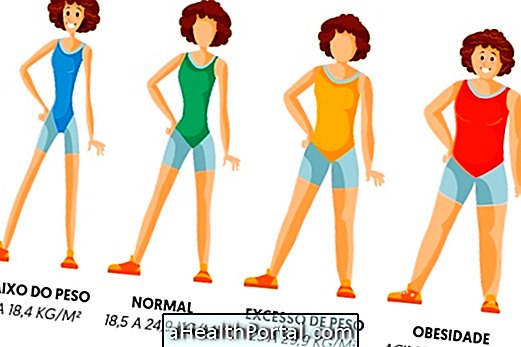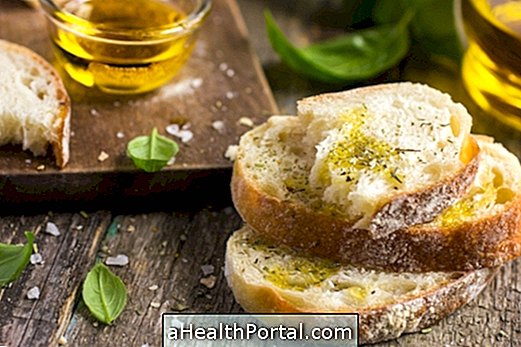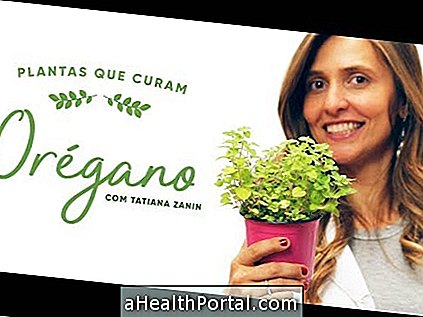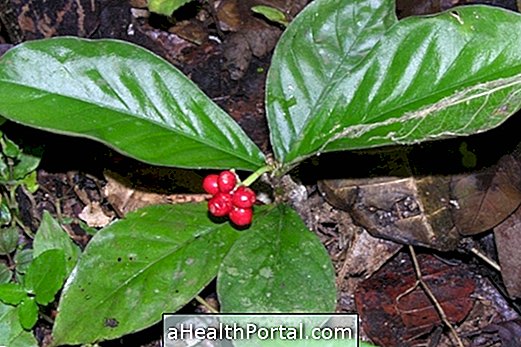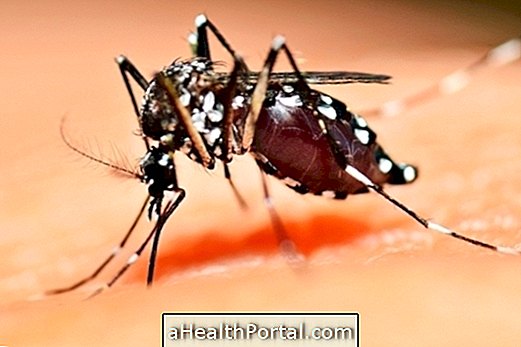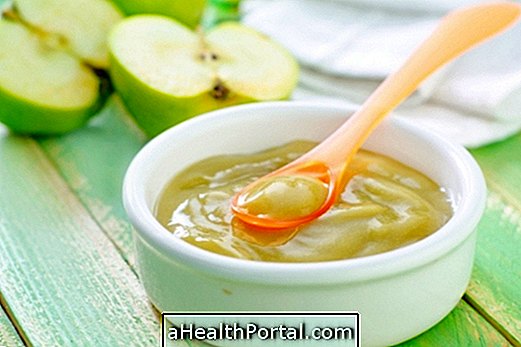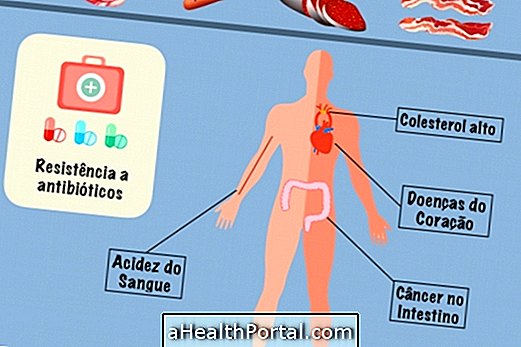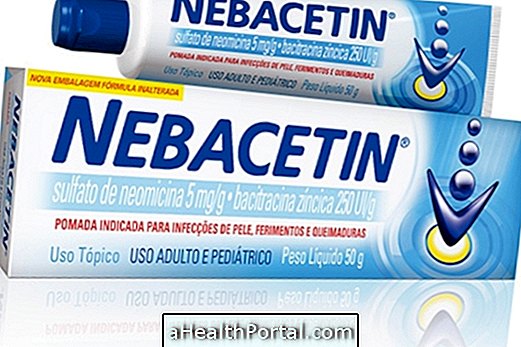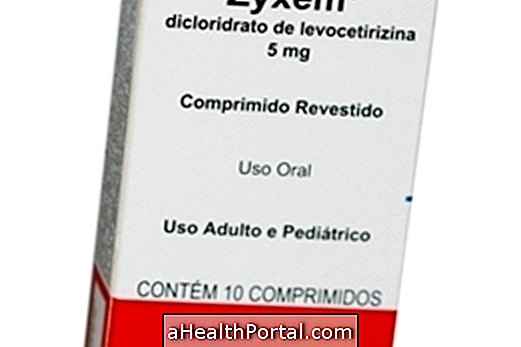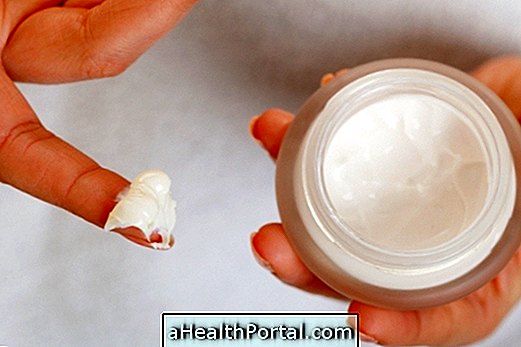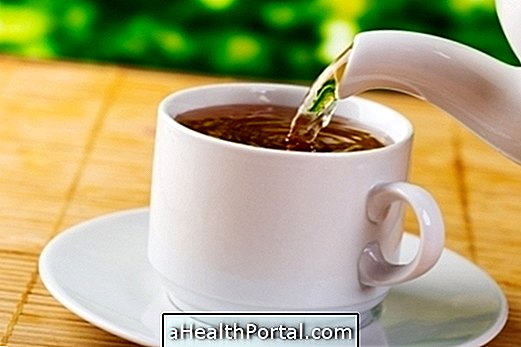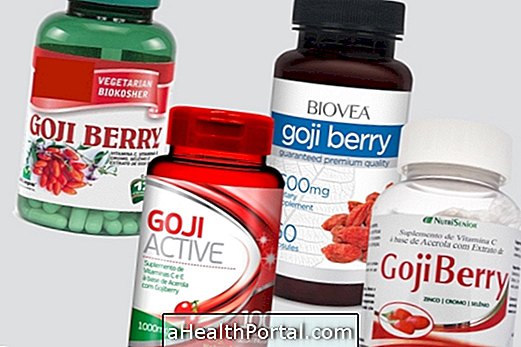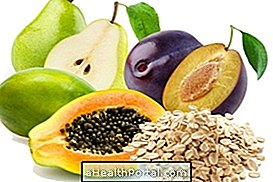Foods like honey and coconut sugar, and natural sweeteners like Stevia and Xylitol are some of the natural alternatives to replace white sugar to help weight loss and improve health, favoring the prevention and control of diseases like diabetes, high cholesterol and obesity.
It is important to avoid using sugar because its excess favors weight gain and stimulates fat production, which increases the risk of problems such as tooth decay, heart disease and liver fat, for example. Here are 10 natural alternatives to exchange sugar and get healthier without losing the sweet taste of food.
1. Honey
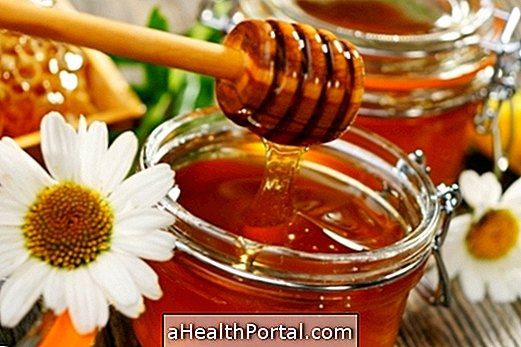
Bee honey is a natural sweetener rich in nutrients such as potassium, magnesium, iron and calcium, bringing benefits such as strengthening the immune system, acting with anti-oxidant, improving digestion and keeping the intestinal flora healthy.
In addition, honey has a medium glycemic index, which means that small amounts of this product do not stimulate the production of fat as happens with sugar. Each scoop of honey has about 46 calories, and it is important to remember that it can not be given to children under 3 years of age. See more about the benefits and contraindications of honey.
2. Stevia
Stevia is a natural sweetener obtained from the Stevia Rebaudiana Bertoni plant, which can be found in supermarkets and natural products stores in the form of powder or drops. It has the ability to sweeten about 300 times more than ordinary sugar, yet has the advantage of not having calories.
Stevia can be used in hot or cold preparations because it is stable at elevated temperatures and easy to use in cakes, cookies or candies that need to be boiled or baked. See the 5 most common questions about Stevia sweetener.
3. Coconut Sugar
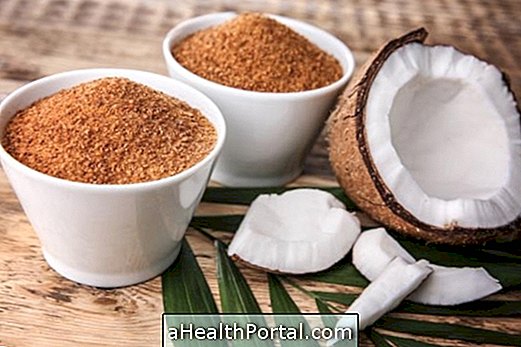
Coconut sugar has a low glycemic index, which means that it does not cause a large increase in blood glucose and does not stimulate fat production, helping to control weight.
In addition, coconut sugar is rich in nutrients such as iron, calcium, zinc and potassium, but because it has a high fructose content, it should be used in moderation because its excess can lead to problems like liver fat and weight gain. Each teaspoon of this sugar has about 20 calories.
4. Xylitol
Xylitol is a type of alcohol sugar, as well as erythritol, maltitol and sorbitol, all natural substances obtained from fruits, vegetables, mushrooms or seaweed. Because they have a low glycemic index, they are a healthier natural choice and have a sugar-sweetening ability.
Another advantage is that xylitol does not harm your teeth and has fewer calories than sugar, taking about 8 calories for each teaspoon of the product. As its sweetening power is similar to that of sugar, it can be used in the same proportions as a substitute in various culinary preparations.
5. Maple Syrup
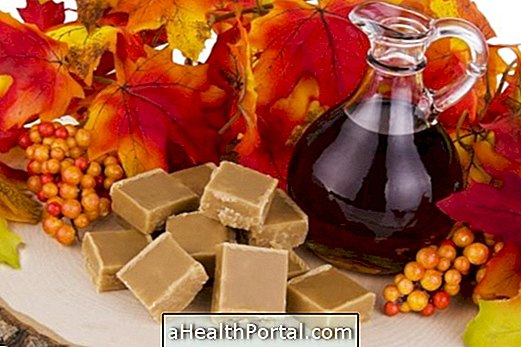
Maple syrup, also called maple syrup or maple syrup, is produced from a tree widely found in Canada, and brings health benefits due to its high content of antioxidants and nutrients such as calcium, potassium and zinc.
Maple syrup can be used in preparations that will be heated, but because they contain calories as well as sugar, it should also be consumed in small amounts.
6. Taumatine
Thaumatin is a natural sweetener composed of two proteins and has the power to sweeten about 2000 to 3000 times more than ordinary sugar. Because it is composed of proteins, it does not have the ability to increase glycemia and does not stimulate fat production, and can be used in diets for weight loss and diabetes control, for example.
Taumatin has the same calories as sugar, but because its sweetening power is much higher than that of sugar, its use is made in very small amounts, which adds few calories to the diet.
7. Fruit jelly without sugar
Adding unsweetened fruit jellies, also called 100% fruit, is another natural way of sweetening foods and preparations such as yogurts, vitamins and pasta for cakes, pies and biscuits.
In this case, the natural sugar of the fruit is concentrated in the form of jelly, which increases its sweetening power, as well as flavoring the preparations according to the taste of the jelly. To make sure that the jelly is 100% fruit, just check the list of ingredients on the product label, which should contain only fruit, without added sugar.
8. Brown Sugar
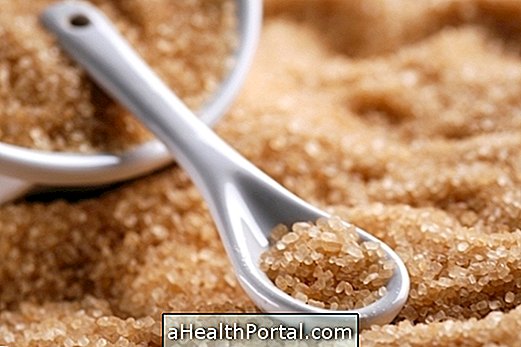
Brown sugar is made from sugarcane, but it does not undergo a process of refinement like white sugar, which causes its nutrients to be preserved in the final product. Thus, it possesses minerals like calcium, magnesium, potassium and phosphorus.
However, it is important to remember that despite having more nutrients, brown sugar has almost the same calories as white sugar, and should not be consumed frequently or used in cases of diabetes.
9. Cane sugarcane
The molasses is a syrup produced from the evaporation of the sugarcane juice or during the production of rapadura, having dark and a strong sweetening power. By not being refined, it is rich in the same minerals as brown sugar, possessing calcium, magnesium, potassium and phosphorus.
However, it should also be consumed only in small amounts because of its high calorie content and should be avoided in cases of diabetes and kidney disease. See more about molasses and learn about the sweetening power and calories of natural sweeteners.
10. Erythritol
Erythritol is a natural sweetener that has the same origin as xylitol, but contains only 0.2 calories per gram, almost a sweetener with no calorific value. It has about 70% of the sweetening capacity of sugar, and can be used by people with diabetes or who wish to lose weight.
In addition, erythritol does not cause cavities and can be found in stores of natural products or nutritional supplements, being sold in the form of powder.
To help you lose weight and control your blood sugar, see 3 steps to reduce your sugar intake.



